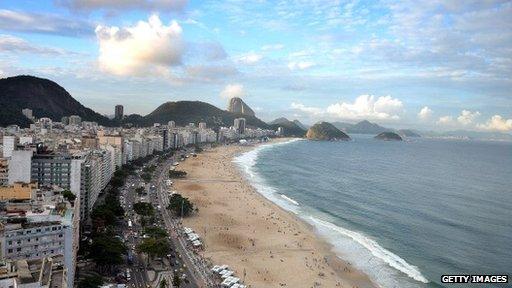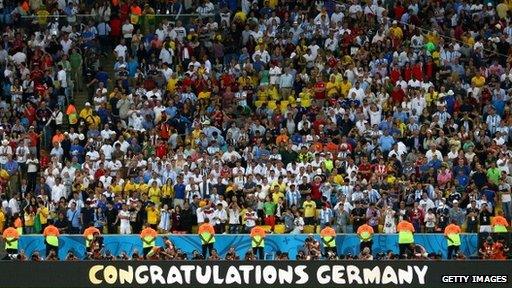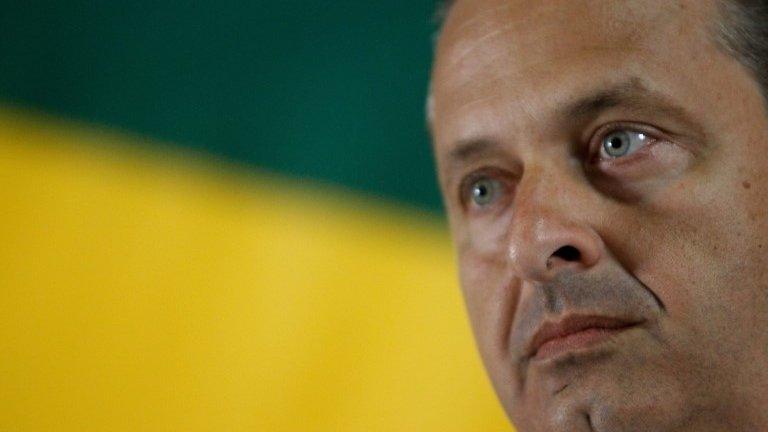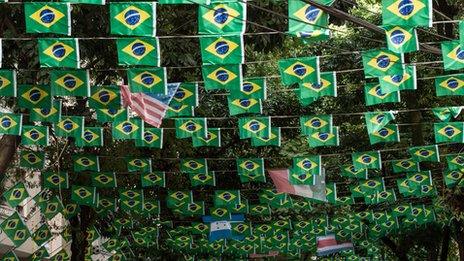Brazil's economy falls into recession, latest figures show
- Published

Brazil has fallen into recession, just a month before the general election, latest figures show., external
Economic output, GDP, fell by 0.6% in the three months to June, worse than analysts had predicted, and revised figures for the first quarter of the year also showed a fall of 0.2%.
A recession is usually defined as two consecutive quarters of contraction.
The news will be damaging for the government of President Dilma Rousseff.
According to the most recent poll, Ms Rousseff would lose to a rival candidate, environmentalist Marina Silva, if October's election went to a second round.
The World Cup, held in June and July, was not regarded as generally good for business, says the BBC's Wyre Davies in Rio de Janeiro.
"There were more days off for employees and many traditional tourists stayed away," he says.
"The problem is that, with elections due in early October, the economy is increasingly seen as President Dilma Rousseff's weak point."

The World Cup failed to lift Brazil's economic output
The data showed that civil construction, manufacturing and investment especially suffered during the second quarter.
'Worrying slowdown'
"This recession shows the exhaustion of a growth model that has been centred on internal consumption," said Eduardo Velho, chief economist at investment firm INVX Global in Sao Paulo.
"It is a good picture of what the economy is suffering - a slowdown in industry, a fall in investment, rising inventories. The recovery from here will be slight," he continued, saying that deep reforms would be needed whoever wins the next election.
The second quarter figures prompted analysts to revise down expectations for full-year figures.
"With the sharp fall in investment, the potential GDP growth rate shows a significant and worrying slowdown in recent quarters," said Cristiano Oliveira, economist at Banco Fibra in Sao Paulo.
"That said, we now expect no growth in the Brazilian economy in 2014, despite moderate growth in the global economy."

Analysis: Katy Watson, business reporter, Sao Paulo
A decade ago, Brazil was the darling of emerging economies. The country reaped the benefits of soaring commodity prices and government spending helped millions of poor Brazilians enter the middle class - the future looked bright.
But it's a very different picture now. Investor and consumer confidence has fallen, just like industrial output and retail sales are struggling too.
The World Cup may have taken people's minds off economic worries temporarily, but the issue is now top of the agenda. There is just over a month to go before the presidential elections and today's figures will be seen as an opportunity for candidates hoping to unseat President Dilma Rousseff.
They'll use the R-word to try to convince voters that their economic policies are a better alternative for the country's future.

- Published14 August 2014

- Published30 May 2014
